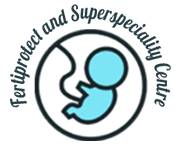Our kidneys work tirelessly to filter waste, balance fluids, and keep our bodies in good health. However, certain habits can negatively impact these vital organs, often without us realizing it. Dr. Sandeep Morkhandikar, a leading nephrologist, highlights the top 10 common bad habits that silently damage your kidneys. It’s essential to be aware of these habits and take proactive steps to protect your kidney health.
1. Not Emptying Your Bladder Timely
Regularly holding in urine when your bladder is full can lead to bladder infections, which may spread to the kidneys. This puts stress on your kidneys, increasing the risk of infection and long-term damage.
2. Insufficient Water Intake
Staying hydrated is crucial for kidney function. When you don’t drink enough water, your kidneys can’t effectively flush out toxins, leading to waste buildup and the risk of kidney stones. Drinking plenty of water helps your kidneys work more efficiently.
3. High Salt Consumption
Excessive salt intake increases blood pressure, which is a major factor in kidney damage. Your kidneys have to work harder to excrete the excess sodium, which can weaken them over time. Reducing salt in your diet can lower your risk of developing kidney problems.
4. High Protein Diet
While protein is essential for the body, consuming too much—particularly animal protein—can strain your kidneys. Processing excess protein produces waste that your kidneys must filter, potentially leading to kidney damage in the long run, especially in people with pre-existing kidney conditions.
5. Ignoring Common Infections
Neglecting minor infections such as colds, flu, or urinary tract infections (UTIs) can have serious consequences for your kidneys. Untreated infections can lead to inflammation and impair kidney function. It’s important to treat infections promptly to protect your kidneys from harm.
6. Consuming Too Much Caffeine
Drinking too much caffeine from sources like coffee, tea, and energy drinks can raise your blood pressure and stress your kidneys. High blood pressure is a leading cause of kidney disease. Limiting your caffeine intake can help reduce the risk of long-term kidney issues.
7. Drinking Excessive Alcohol
Heavy drinking not only damages your liver but also affects your kidneys. Alcohol dehydrates the body and makes it harder for the kidneys to function properly. Chronic alcohol consumption can lead to kidney failure over time, so moderation is key.
8. Smoking Cigarettes
Smoking harms your kidneys by reducing blood flow to them. This impairs their ability to filter toxins from your blood, leading to increased risk of chronic kidney disease and kidney cancer. Quitting smoking is one of the best ways to protect your kidney health.
9. Regular Use of Analgesics (Painkillers)
Frequent use of over-the-counter pain medications, especially non-steroidal anti-inflammatory drugs (NSAIDs), can damage your kidneys. Long-term or excessive use of these drugs can lead to chronic kidney disease. Always consult a doctor before taking painkillers regularly.
10. Lack of Sleep
Chronic sleep deprivation can disrupt kidney function and increase the risk of high blood pressure, which harms the kidneys. During sleep, your body repairs damaged tissues, including the kidneys. Prioritizing good sleep habits can help your kidneys stay healthy.
Protecting Your Kidneys Starts with Healthy Habits
Many of the habits that harm your kidneys can be easily corrected with lifestyle changes. Dr. Sandeep Morkhandikar advises patients to stay hydrated, eat a balanced diet low in salt and processed foods, and avoid excessive alcohol, caffeine, and painkillers. Regular medical check-ups and taking preventive measures are key to keeping your kidneys functioning well for years to come.

